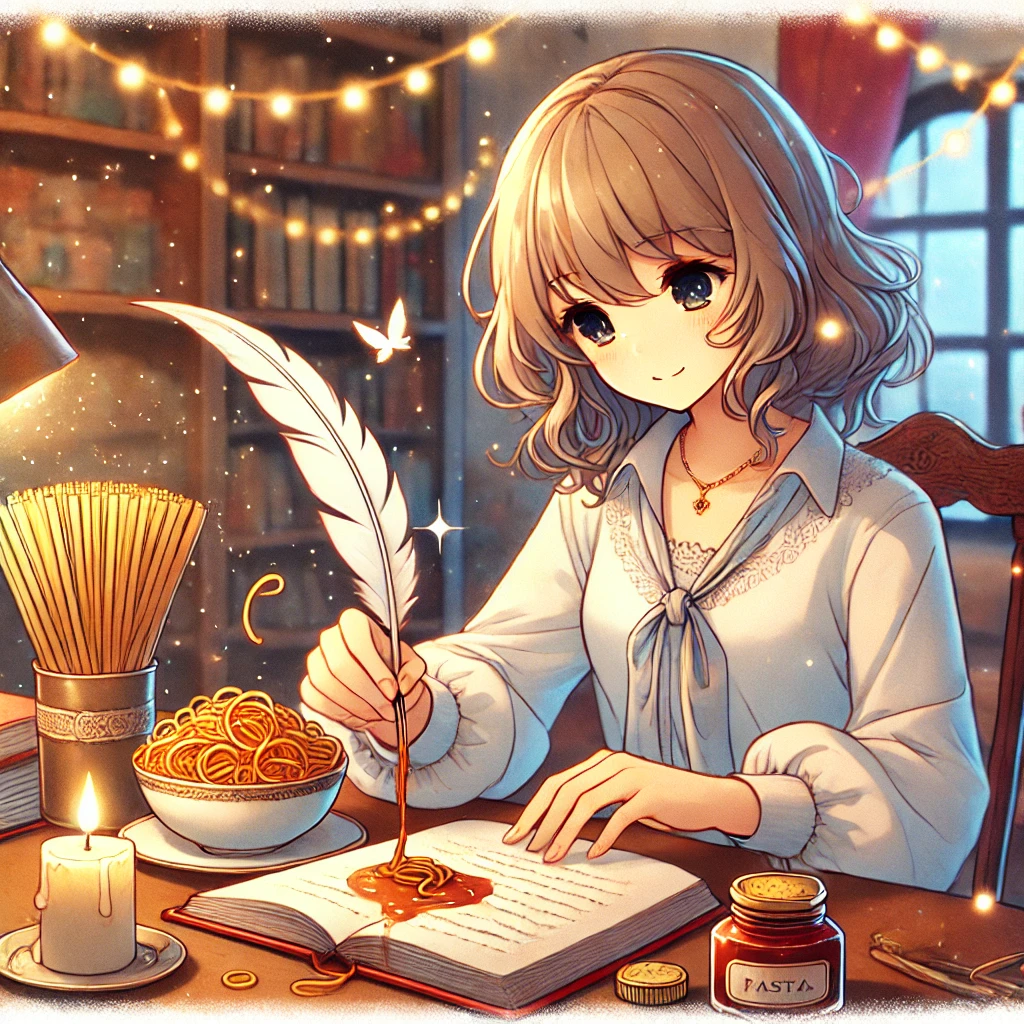Your Brain Already Knows How to “Show, Don’t Tell”
aka, Your Brain is a Flashback Machine/Writing God You Take For Granted
I’m in a lot of Facebook groups for writers. Like, a lot. Possibly too many. So many that my algorithm thinks I am a 2003 Tumblr post with feelings. And what I see constantly are posts like this:
“Hey, can I get feedback on this character description?”
[posts one sentence]
“Also, do you think this is good? Should I change it? Does this make sense? Should I give up writing and become a mushroom farmer?”
And listen—while these posts ask for advice, they’re actually seeking something else.
They’re looking for permission.
Permission to be a writer.
Permission to be “good enough.”
Permission to just… write.
So here’s my unsolicited-yet-sage advice before we dive into the real applesauce:
Unplug your router. For two hours. Stare at your screen. And write.
However 👏You 👏 Want 👏
Let it be weird. Let it be bad. Let it exist. You can edit later. Chaos first, coherence later.
Now that your rebellious, slightly feral creative self is activated—let’s talk about one of the biggest writing hurdles for new writers (and let’s be honest, even seasoned ones):
“Show, don’t tell.”
YUP. That cursed phrase. It’s haunted you in your dreams like a passive-aggressive ghost editor with a red pen and no chill.
But what does it actually mean? You’re already trying to “show,” right?
Like:
“He opened the door languidly, swiftly, carefully, obediently, stupidly—”
Okay, that sentence makes me want to hand you a gun and, lovingly, ask you to shoot me in the foot. Adverbs are cool. But if every paragraph is peppered with adverbs, I’m going to vomit tomorrow’s dinner.
Let’s be real: sometimes writing advice feels like someone handed you a jigsaw puzzle with no box image and a few missing corners. You’re expected to “show” things without ever being taught what that actually looks like.
So allow me to offer you a much tastier solution than any other overpriced class:
🍝 My Super Secret Pasta Sauce™ for Writing Delicious Prose 🍝✨

AKA – 🧠 Memory Is Your Secret Weapon
Here’s the trick I swear by: Write your prose like you’re remembering it.
Yep. That’s it. That’s the sauce.
You’re already a master of this—you just don’t know it yet. Think about it:
- You relive old high school moments constantly, when Kenny let you borrow his mechanical pencil and your fingers accidentally touched. You felt what you could only imagine it was like to be struck by lightning – and called it a ✨spark✨ between you two. Thus, starting your one-sided love affair with the class cutie.
- You spiral about arguments from 3 years ago, and how you could’ve “totally won that” if you’ve thought of the perfect clap back you’re now just coming up with in the shower, and if your voice wasn’t shaking too much.
- You daydream about the younger version of yourself, and how you would have grown up if your life circumstances were different. And even if you didn’t grow up in a mansion, your brain makes up scenarios so well, they actually feel like they’re real.
Your brain is a walking, talking, glitchy VHS tape of emotions. USE IT. (Sidenote: do you know what a VHS tape is? Please tell me you do… A CD? No?)
Let’s look at an example:
❌ Telling Version:
“There was a girl who had brown hair and dark brown eyes, and people around her in town found her weird.”
Cool. Thanks, Wikipedia.
✅ Showing via Memory:
“I remember there was a girl in town who always walked like she was in a state of uninterrupted marvel. She always carried a book, wandering through the village in search of the perfect patch of shade beneath a tree.
I remember she never really said hi to passersby, though it was a common courtesy here. She wasn’t rude—just lost in her own thoughts. Still, the town called her the ‘strange, peculiar girl,’ who lived among people but was never quite with them.”
Feel the difference? That girl’s MOVING now. You’re in the village. You’re gossiping with the titas. You’ve entered the story—not just skimmed a character sheet.
🪄 The Magic Trick: DELETE THE MEMORY INDICATORS
Now, do the fun bit: Chop off the “I remember.” Let the vibe stand on its own.
“I remember There was a girl in town who always walked like she was in a state of uninterrupted marvel. She always carried a book, wandering through the village in search of the perfect patch of shade beneath a tree.
She never really said hi to passersby, though it was a common courtesy here. She wasn’t rude—just lost in her own thoughts. Still, the town called her the ‘strange, peculiar girl,’ who lived among people but was never quite with them.”
BOOM. Welcome to flavor town, baby.
You just “showed” instead of “told” without once yelling “Look! I’m showing!”
💪 Spicy Writing Workouts To Try Right Now
Exercise 1: Turn a Boring Sentence Into Memory Gold
Start with something dry like:
“He was quiet and awkward.”
Now spice it:
“There was a boy who spoke like every word cost him money. He’d hover at the edge of conversations like he was waiting for a turn that never came, hands always tucked into sleeves like the world was too cold, even in July.”
Now delete the “There was a boy…”, replace it with “He” and let it live as a moment in motion.
“There was a boy who He spoke like every word cost him money. He’d hover at the edge of conversations like he was waiting for a turn that never came, hands always tucked into sleeves like the world was too cold, even in July.”
👏 Magic.
Exercise 2: Petty Memory, Perfect Character
Write a paragraph about someone who annoyed you. Channel your inner petty.
“I remember a guy who He always took the last slice of pizza even if he didn’t want it. He’d eat it slowly, like it was a burden, and look around smugly, like generosity personally offended him.”
Now you’ve got a villain. Congrats.
Exercise 3: Mythify Your Own Life
Don’t say, “I grew up in a small town.” Say:
“In a quiet town pressed against the edge of nowhere, there was a kid who carried a pen like it might save her life. She drew stars on her wrists and wrote stories in the back of math workbooks, hoping no one would notice the storm building behind her quiet.”
You see the cinema in that? Now delete the intro line and drop your reader right into the folklore. 🔥
🧁 Before You Go Bake Some Prose…
Here’s your cheat sheet to showing, not telling:
- “Showing” is about immersing, not explaining.
- Use memory cues to tap into emotion and scene.
- Adverbs aren’t the enemy. But specificity is your god now.
- You don’t need big words—you need honest ones.
- Write like you lived it. Then slice off the “I remembers” and boom—you’ve got literary sorcery on your hands.
You’re not a bad writer. You’re just trying to write without memory. Don’t.
Let it be messy. Let it be nostalgic. Let it be alive.
And for the love of all things Pasta, stop asking Facebook for permission.
📚 Want more chaotic wisdom on writing, storytelling, and slaying your WIP?
Follow AlònTala Publishing on Facebook for raw writing truths, upcoming releases, and quiet reminders that your story still matters—even when no one’s clapping.
Join our AlònTala: Tales & Tides on Facebook. It’s where the bold, the tired, and the quietly relentless gather. We say yes even when it’s hard.
Subscribe to our Substack pages for ✨ bonus rants, spicy writing prompts, and behind-the-scenes fiction bits:
Indie From the Islands on Substack (Mariel’s)
Daydreams for Breakfast on Substack (Pasta’s)
Have questions? Suggestions? Profess your undying love and affection for a member of the team? 👀 We listen and we don’t judge. Send us an email at hello@alontala.com
Can’t get enough of us? Click here to read more blog posts!



